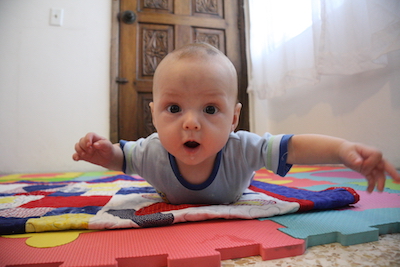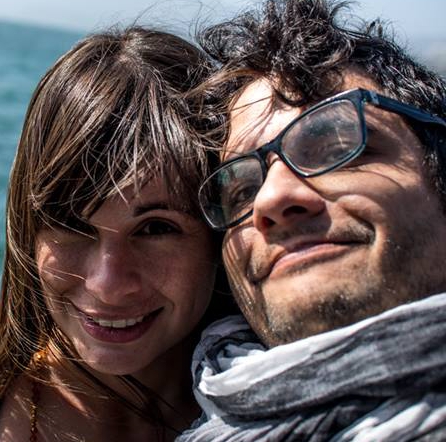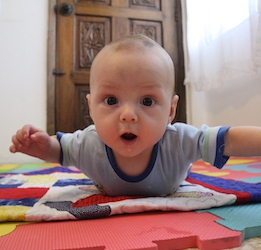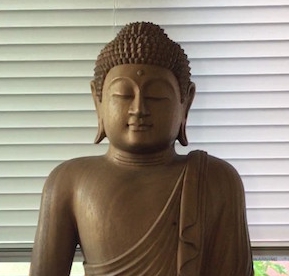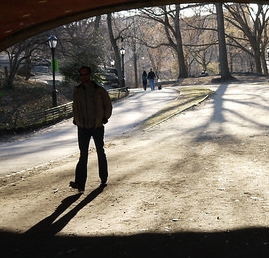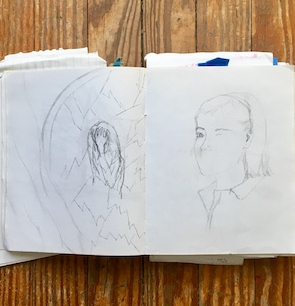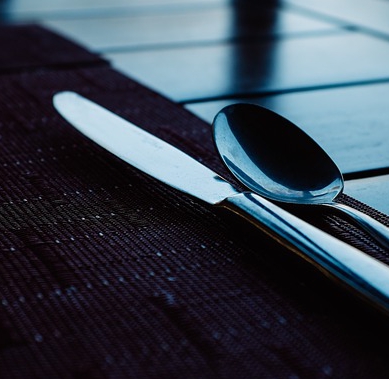When a book called Where There Is No Doctor tells you to find a doctor based on your symptoms, you’re in trouble. Sitting on my couch in Port-au-Prince, Haiti, skimming the section on “appendicitis,” trying to keep my six-month-old son happy, I hoped beyond hope that there was something in the book that wasn’t online. Some secret way to avoid a hospital stay in the third world, some natural trick like, “Curl up into a ball and watch Back to the Future, and it should be better within 24 hours.” Actually, I did try that. All day on Saturday, I lay on the couch with Doc and Marty and prayed that it was some kind of stomach bug, which the expat community whimsically calls “Haitian Happiness.” Yet here we were, Sunday morning: the worst day of the week to be sick in Haiti, because the doctors aren’t in the office. I’d reached the point where the pain was worse than the discomfort of crossing cultures to find medical help.
We grabbed snacks, filtered water, toys, diapers, a change of clothes for Peter and all the cash we had, which wasn’t much. Luckily for me, racism is also alive and well here, and after living there for two years, I knew I’d be treated well even if I didn’t have the cash on me. We sent off a quick message to let our coworkers/neighbors with Mission Aviation Fellowship know what was happening. Jumping into our Montero, we descended into the ravine to start the long drive to Bernard Mevs Hospital, and my husband David said, “You pray.” I didn’t even know what to say; my brain was fuzzy from the pain and words wouldn’t come. “Just take care of us, please, God.” That was all I could manage.
We inched our way down the narrow street to the hospital. People edged by us in the street due to the women blocking the sidewalks selling vegetables on tarps in neat piles, sticks of white laundry soap, cheap perfume, secondhand clothes a decade out of style. David honked the horn outside the tall, ornate metal gate, and the security guard let us park inside.
He directed us to triage, and we waited. We should’ve worn bug spray; the triage area was under a tarp near the front. It’d been two-and-a-half years since the massive earthquake, but the hospital was still overrun with people, and they were spilling outside to make-shift facilities to care for them all. Well-meaning charitable organizations had arrived in 2010, offering free care…which meant that several for-profit hospitals went out of business due to lack of patients. The money dried up, the organizations patted each other on the back for a job well done, and left. Bernard Mevs was smarter; by partnering with University of Miami, they kept their doors open and managed to keep some American doctors coming who could help train their staff.
We waited, sans bug spray. We entertained Peter with peek-a-boo and books. We waved off the flies and watched him chew on the wide red plastic feet of his favorite teething toy, his frog. He nursed. He slept. We waited.
After an hour, we were ushered into a doctor’s office. There was no air conditioning, and the blinds were closed. He looked over my paperwork and asked the same questions I’d answered already on the form. My stomach hurts. No, I haven’t vomited. No, I don’t have diarrhea. About 24 hours. No, I’m not pregnant, and no, I’ve never had my appendix out.
He had me stand up. He poked me in several places. He checked me for scoliosis and looked in my ears and nose. I knew that losing my temper would do nothing to move my situation forward, but the blatant incompetence was quite literally difficult to stomach. I smiled. I made small talk. I was sent back to triage, and we started the Medicine Relay Race. You seem to be in pain. We’d like to give you something. Go to the pharmacy, stand in line, and buy it in cash. Then bring it back and we’ll administer it to you. Hmm, we didn’t sell you enough. Go to the pharmacy, stand in line, and buy more. Then bring it back and we’ll administer it to you. As David was running his fourth medicine relay, an American doctor walked in. Let’s call him Dr. Day; that’s how long he’d been in Haiti. One day.
Dr. Day talked with me for about 60 seconds, pressed my right knee into my hip socket, I yelped and he diagnosed me with appendicitis. “You need to get on a plane,” he said. “Go home, pack a bag, and get the heck out of here.” This guy had all the answers. How fortunate that we ran into him. About the same time, our coworkers showed up. John and JoAnn were as close to family as we had at the time, and they’d been in Haiti more than a decade. In other words, they had arrived when those clothes on the street were in style. “What do you want to do?” John asked us. He was acting program manager for our organization, and he’d have to approve my travel. The epic eye-roll he gave Dr. Day told me he didn’t agree, so we pulled him aside and talked more. “You can do what you want – don’t let my opinion stop you if you want to go. But it’s a simple surgery, and you’ll have more support here. Karen had her surgery here, didn’t she?” I couldn’t argue with that; I didn’t know anyone in Miami, and we’d still have Peter to think about.
My prayer echoed in my ears, and I prayed it again: Lord, take care of us. That’s when Dr. Tori showed up. She appeared to be Haitian and spoke English without an accent; Dr. Day’s reaction told me she was in charge. We brought her up to speed. “We can do it laparoscopically tomorrow morning.” That clinched it. I wasn’t going to get better than that in Miami. We passed Peter off to JoAnn, who received him greedily. They rushed to the grocery store before it closed to buy formula and bottles, while our other coworkers raided our house for food, sheets, phone chargers and David’s kindle. It’s BYOE in Haitian hospitals – Bring Your Own Everything. I felt better on the meds, and I begged David to let me go home for the night. When he stopped laughing, we tried to get settled in our “room.”
Longer than the labor to birth my son. Longer than Christmas Eve. Longer than the night before school starts in the fall. In fact, combine those three, and you’ll have some idea how long this night was. Although it was a “private” room due to my skin color and presumed affluence, it contained a storage closet in which all the employees kept their belongings, and to which they therefore needed access, all night long. The walls were a salmon pink that was supposed to be soothing, but which reminded me of Pepto-Bismol. It was poorly screened, and flies and mosquitoes kept landing on me. The one lightbulb illuminating the room was on my side of the plywood barrier, and it was a 75-watt bulb. I wanted to unscrew it, but lacked the strength and a sturdy ladder. My stomach complained at intervals, as I was not allowed to eat. I pumped milk and dumped it, missing my son in so many ways. I texted my mom, whose worry was palpable, felt at the tips of my fingers through the screen. I wrote a blog post, asking friends to pray for me. I didn’t try to sleep.
The boy on the other side of the barrier had been vomiting on and off. He had a high fever. He tried to get to the bathroom and ended up peeing on the floor, much to the chagrin of his relatives, who were sleeping on the floor near him. They berated him loudly, and he apologized over and over, even after their tirade ended. Later, I tiptoed over them to use the bathroom. That’s not easy to do…then add an IV pole. Once outside, I found more relatives, too poor for guesthouse beds, stretched out on concrete benches and under building ledges. I used the staff bathroom on the other side of the courtyard instead of braving the outhouse in the dark, and no one stopped me. I ran out of medicine in the IV bag; no one replenished it.
My husband David stayed with me through that horrible night. He tried to sleep upright in a chair with a concave seat that reminded me of Jack Donaghey’s torture device from the NBC sitcom 30 Rock. In the morning, I asked if he wanted to go get Peter, but he wouldn’t leave me. Around 8 a.m., we asked the nurse again: “When will my surgery be?” She waved a hand. “You’re first, you’re first.”
“First at what time?”
“Whenever they come in. Two surgeons, brothers. Matching black SUV’s.” We should’ve known that the time would be “as soon as David goes to get food.” As they were wheeling me out, and across the large courtyard, I caught his eye. All I could do was wave bravely. I did not know a face could go so pale so fast. I did not know a look could mean so much across so great a distance.
“Someone needs to go talk to my husband in English.”
“Someone will. Take off your clothes and your jewelry, and we’ll give them to him.”
I was still wearing the same clothes I’d picked out the morning before. I folded them neatly, and then it was time to take off my wedding ring. I hoped it wouldn’t come off, but it did. I felt like I was preparing my own body for death, stripping it of its earthly souvenirs. I handed them to the nurse and emphatically insisted again: “Someone needs to go talk to him in English and tell him what’s happening.”
She turned and gestured to a man, who came over. “This man will take your things and explain it to him.”
“And he speaks English?”
“Of course.”
He didn’t, of course. David said later that he handed him my clothes and said in Kreyol, “It’ll be a while. We’ll let you know when she’s done.” They’d let me keep my phone, and I texted with him, my husband, my best friend. We shared movie quotes and silly moments from our shared history. I told him moment by moment how things were progressing, as if he was right there with me, and he said he’d be right there with me as soon as I was done.
I lay on the hard gurney alone. My breasts were full; I’d been given no chance to pump before the surgery. Then a baby started to cry in the next carrel. There’s a reflex that new moms have when they hear a baby crying, even if it’s not theirs: it’s called the let-down. Milk began to flow down my sides, dark stains spread across the paper gown. I applied gentle pressure to stop it, but it was no use. I was betrayed by illness, hunger and pain, and now, by my own body, spilling warm fluids unbidden. And against my will, I cried with him. I cried with the baby, whom I couldn’t comfort and couldn’t see. I cried for the still-nursing son who needed me to survive surgery in a foreign country. I cried for the husband who was sitting by himself on a curb outside, swatting mosquitoes, waiting to find out if I was OK. I cried for me. In that humiliating moment, I felt a deep connection to my humanity in a strangely tender way. Under bright lights, I took a deep breath and counted backwards from ten.
Christine Harms is an American writer living in Port-au-Prince, Haiti with her husband and two children. She also works for Mission Aviation Fellowship as a teacher.
